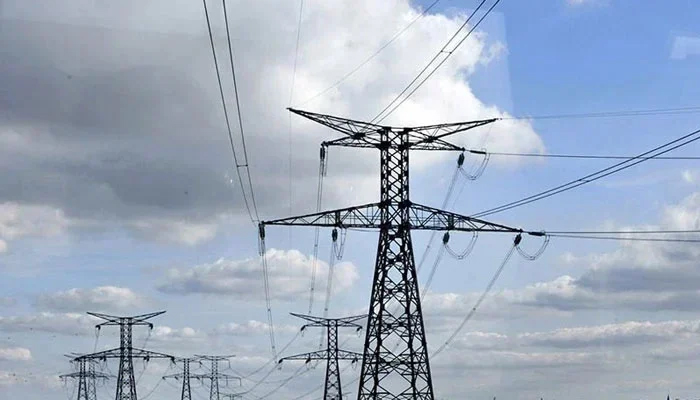Hike in energy tariffs to deepen industrial crises: PTEA
He says GST levied on electricity, gas bills was refunded to industry after delay of 4 to 6 months, causing financial strain
FAISALABAD: Pakistan Textile Exporters Association (PTEA) Patron-in-Chief Khurram Mukhtar has voiced concerns over continuous increase in energy tariffs, warning of further crises in the already struggling industry.
In a press release issued here on Thursday, he demanded immediate reversal of the recent hike in energy tariffs for the export industry and suggested that the 18 per cent (PC) general sales tax (GST), imposed on electricity and gas bills for the export industry, should be turned into zero.
He said the GST levied on electricity and gas bills was refunded to the industry after a delay of four to six months, causing financial strain on the industrial sector.
Mukhtar emphasised that a significant portion, ranging from 30pc to 40pc, of production costs was attributed to energy expenses and any increase in the energy prices directly impacted the production costs.
The PTEA patron-in-chief called for discussions with the International Monetary Fund (IMF) to determine competitive energy prices and rationalise cross-subsidies. He said the recent hike in electricity and gas prices would result in severe losses for the industrial sector. Instead of increasing prices, Mukhtar urged the authorities to focus on controlling losses, incurred by transmission and distribution companies and ensuring complete recovery of dues. Regarding export refunds, Mukhtar highlighted the adverse effects of delays in their disbursement on industrial operations.
He underscored the urgent need for prompt repayment of exporters’ refunds and immediate implementation of zero-rated GST on energy bills. He warned that the manufacturing sector is already grappling with challenges such as rising external debts, a decrease in large-scale manufacturing, tax issues and escalating energy prices, necessitating an immediate rollback of the energy tariff increase for the industrial sector.
-
 Princess Eugenie Breaks Cover Amid Explosive Family Scandal
Princess Eugenie Breaks Cover Amid Explosive Family Scandal -
 Will Kate And Anthony Have 'Bridgerton' Spin Off? Revealed
Will Kate And Anthony Have 'Bridgerton' Spin Off? Revealed -
 Schoolgirl Eaten Alive By Pigs After Brutal Assault By Farmworker
Schoolgirl Eaten Alive By Pigs After Brutal Assault By Farmworker -
 King Charles’ Statement About Epstein Carries A Secret Meaning: Here’s Why It Can Be An Invite To Police
King Charles’ Statement About Epstein Carries A Secret Meaning: Here’s Why It Can Be An Invite To Police -
 Demi Lovato Delivers Heartbreaking Message To Fans About Her Concerts
Demi Lovato Delivers Heartbreaking Message To Fans About Her Concerts -
 Sweden's Princess Sofia Explains Why She Was Named In Epstein Files
Sweden's Princess Sofia Explains Why She Was Named In Epstein Files -
 Activist Shocks Fellow Conservatives: 'Bad Bunny Is Winner'
Activist Shocks Fellow Conservatives: 'Bad Bunny Is Winner' -
 Noel Gallagher Challenges Critics Of Award Win To Face Him In Person
Noel Gallagher Challenges Critics Of Award Win To Face Him In Person -
 Minnesota Man Charged After $350m IRS Tax Scam Exposed
Minnesota Man Charged After $350m IRS Tax Scam Exposed -
 Meghan Markle 'terrified' Over Possible UK Return
Meghan Markle 'terrified' Over Possible UK Return -
 Did Opiate Restrictions Lead To Blake Garrett's Death?
Did Opiate Restrictions Lead To Blake Garrett's Death? -
 Royal Expert Reflects On Princess Eugenie, Beatrice 'priorities' Amid Strained Relationship With Sarah, Andrew
Royal Expert Reflects On Princess Eugenie, Beatrice 'priorities' Amid Strained Relationship With Sarah, Andrew -
 Prince William's 'concerning' Statement About Andrew Is Not Enough?
Prince William's 'concerning' Statement About Andrew Is Not Enough? -
 50 Cent Gets Called Out Over Using Slur For Cardi B
50 Cent Gets Called Out Over Using Slur For Cardi B -
 Scientists Discover Rare Form Of 'magnets' That Might Surprise You
Scientists Discover Rare Form Of 'magnets' That Might Surprise You -
 Nancy Guthrie’s Kidnapper Will Be Caught Soon: Here’s Why
Nancy Guthrie’s Kidnapper Will Be Caught Soon: Here’s Why




